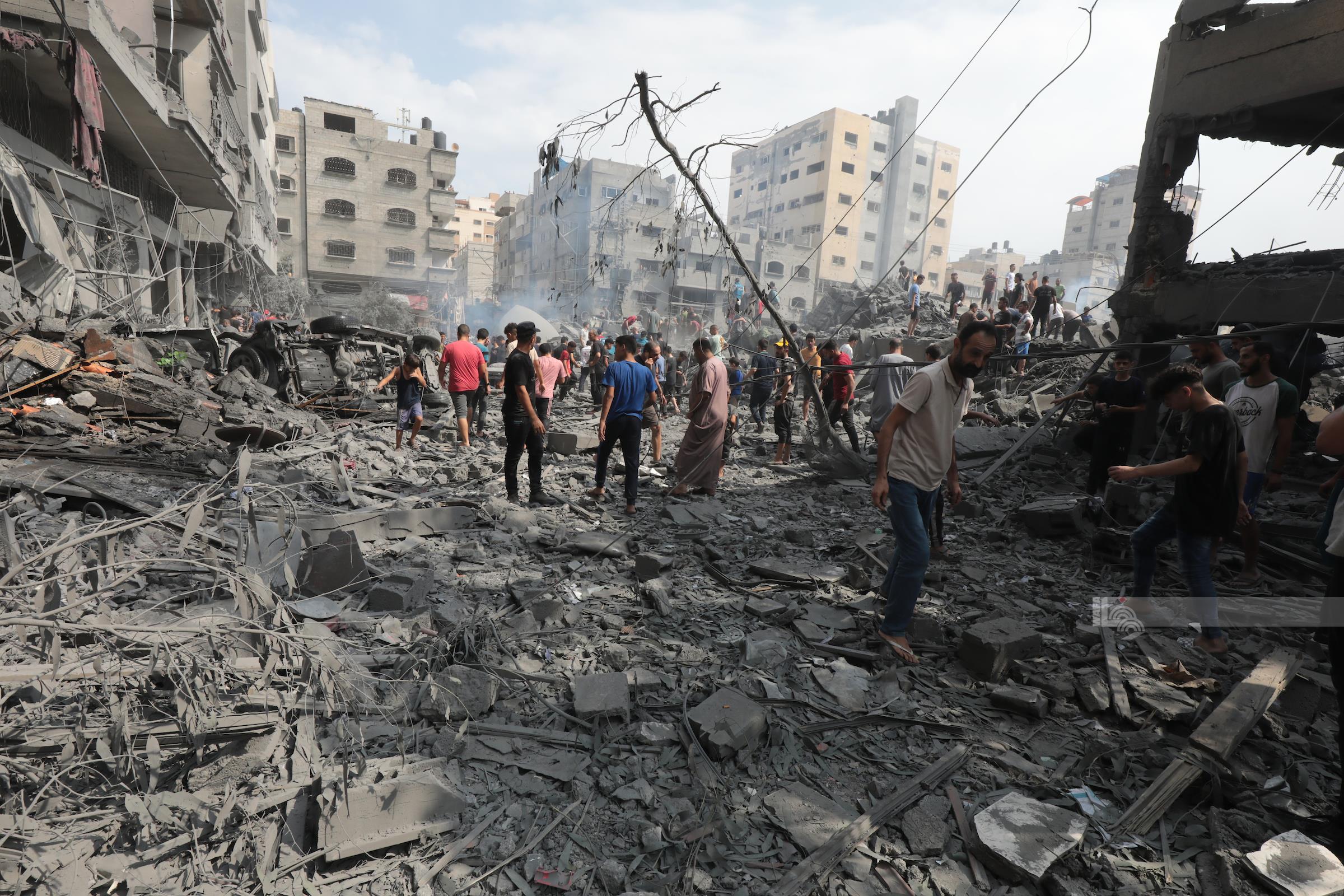As of Tuesday morning, Israel has killed at least 704 Palestinians including more than 50 children.
Human Rights Watch (HRW) has slammed Israel’s use of starvation as “a weapon of war” against Palestinians following the occupation’s decision to impose a complete siege on the densely populated Gaza Strip as it continues its bombardment.
In a statement on Monday, Omar Shakir, Israel and Palestine Director at HRW, condemned Israeli Defence Minister Yoav Gallant’s decision to completely block all access to the already blockaded city as “abhorrent”.
“Depriving the population in an occupied territory of food and electricity is collective punishment, which is a war crime, as is using starvation as a weapon of war. The International Criminal Court should take note of this call to commit a war crime,” Shakir said.
On Monday, Gallant described Palestinians in Gaza as “human animals” as he declared a “complete siege” on the Strip, which has already been subjected to an air, land and sea blockade by Israel since 2007.
“I have ordered a complete siege on the Gaza Strip. There will be no electricity, no food, no fuel, everything is closed. We are fighting human animals and we act accordingly,” Gallant said.
The besieged enclave heavily relies on vital crossings that allow the passage of basic necessities. On Tuesday, Israel attacked the shared Egypt and Gaza crossing of Rafah, which has long served as a crucial lifeline for millions of Palestinians in the city.
The latest developments come after the Israeli occupation forces (IOF) waged a war on the besieged Gaza Strip on Saturday following ‘Operation Al-Aqsa Flood’, in which Palestinian resistance fighters managed to break out of the besieged enclave and infiltrate the occupied territories by land, air and sea.
The Palestinian operation, the largest of its kind in modern history, was carried out by Hamas and saw Palestinian fighters capture more than 130 Israelis including members of the IOF.
Israel declared war shortly after and mobilised hundreds of thousands of troops near Gaza, triggering fears of a potential ground invasion. In a statement announcing the war, Israeli Prime Minister Benjamin Netanyahu vowed to turn Gaza “into rubble.”
Israel’s intensive bombardment has mainly targeted Palestinian residential buildings, schools, mosques and hospitals—most of which have been bombed without prior warning.
On Monday evening, Hamas Spokesperson Abu Ubaida threatened to kill an Israeli hostage every time the IOF strikes a Palestinian home without a warning.
HRW responded warning that such action would also be a war crime.
“All hostages should be safely released to their families,” Shakir said.
However, remarks shared by the Israeli Broadcasting Authority stated that the aggression on Gaza will continue “even if they hurt Israeli hostages, unless accurate information about their whereabouts is available.”
As of Tuesday morning, Israel has killed at least 704 Palestinians including more than 50 children. Since Saturday’s Palestinian operation, more than 900 Israelis have been confirmed dead.
The bombings in Gaza have also displaced at least 180,000 Palestinians, per recent figures by the United Nations Relief and Works Agency for Palestine Refugees (UNRWA).
Western stance
Meanwhile, Israel’s western allies have failed to condemn the IOF’s raids on Gaza and and have instead voiced their support for the occupation.
Just hours after Israel ordered the full-scale war, President of the United States Joe Biden dispatched military ships and aircrafts to support Israel. The US already provides Israel with an annual military aid of at least $3 billion.
On Monday, the European Union’s Commissioner Oliver Varhelyi said the bloc would suspend payments for Palestinians, before backtracking on the decision following a major pushback by members—including Ireland, Spain, and France.
A statement by Ireland’s foreign ministry on the initial announcement said that “there is no legal basis for a unilateral decision of this kind by an individual commissioner”.
Largest ‘open-air prison’
Israel occupied the West Bank, Gaza, and East Jerusalem in a bloody war in 1967, widely known as “the six-day war” or the Naksa, which translates to the “setback”.
Within six days, the Zionist state captured the majority of Palestine while forcibly displacing at least 300,000 Palestinians.
Saturday’s operation by Hamas, Gaza’s ruling party, is widely seen as a historic moment for Palestine, which has been living under Israeli occupation for 75 years.
Home to more than two million Palestinians, Gaza has faced an illegal Israeli air, land and sea blockade since 2007 and has been widely described as the world’s “largest open-air prison”.
Palestinians under siege live with limited electricity and water supplies while patients with severe illnesses struggle to exit the city for treatment as they require Israeli permits.







